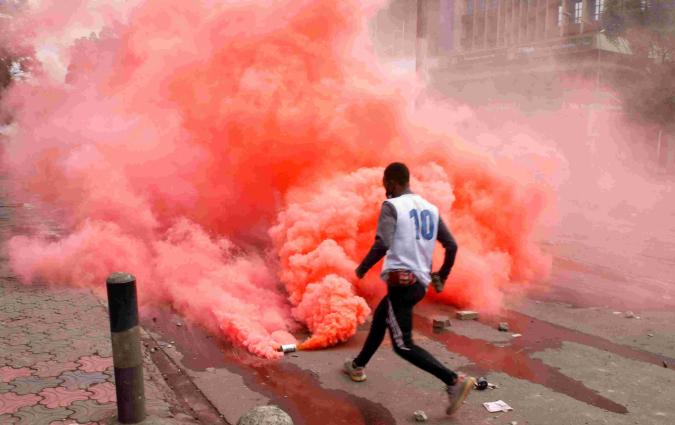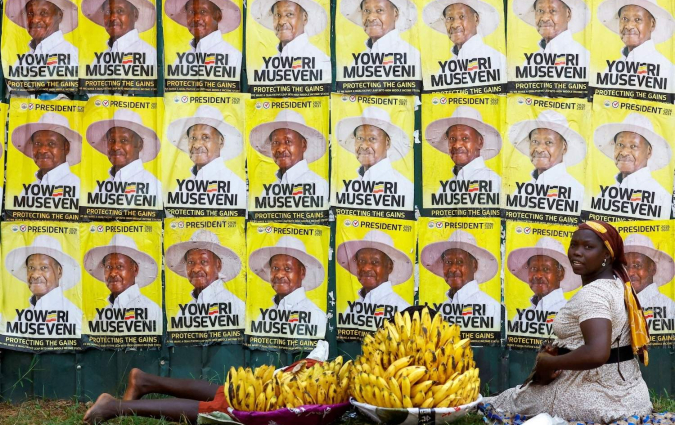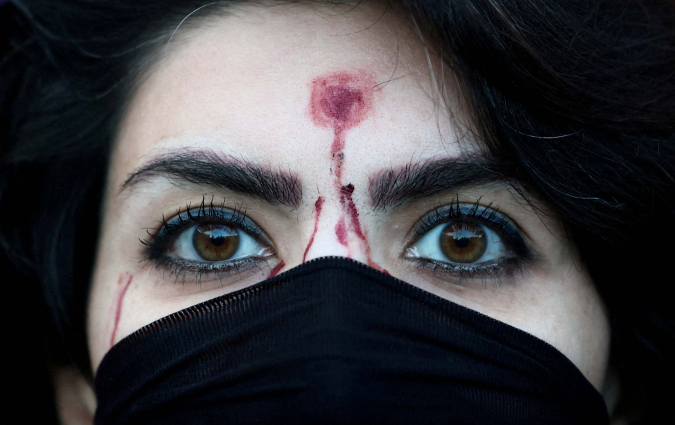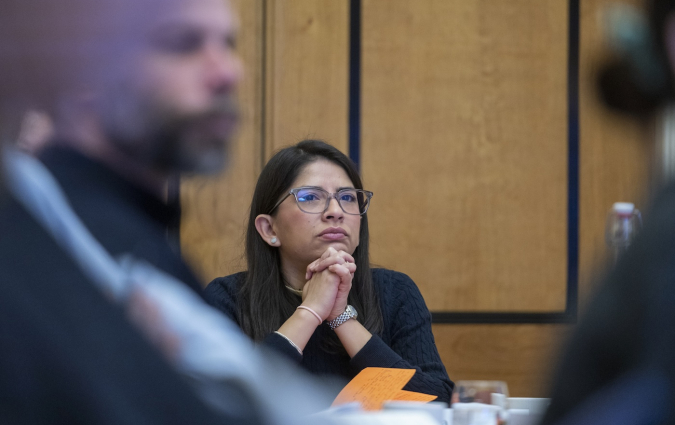As attacks against the press in Pakistan grow by 40% in a single year, journalists blame the West for not speaking up
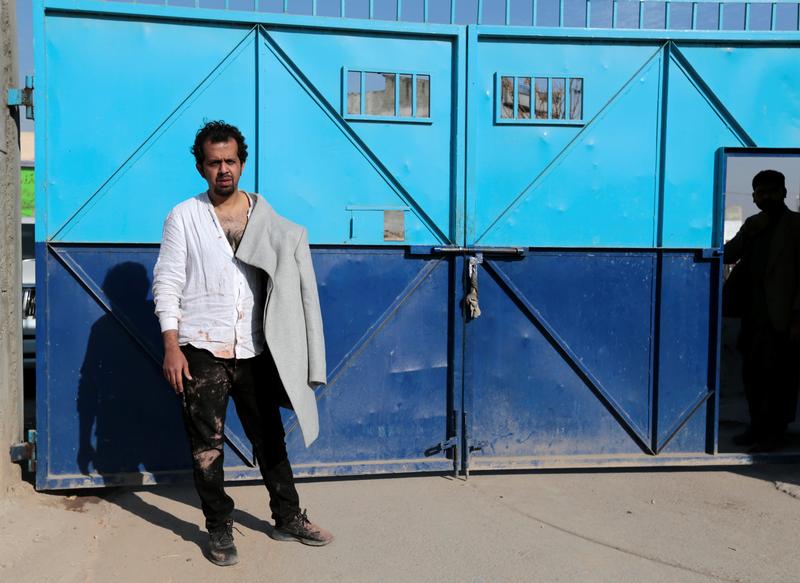
Pakistani journalist Taha Siddiqui, who escaped a kidnapping attempt, waits to be taken to the hospital in Rawalpindi in January 2018. REUTERS/Caren Firouz
An Islamabad-based journalist often works by the window on the first floor of his bungalow, in a fancy part of town. He has sat here for years, documenting frequent kidnappings, murders and violent assaults against journalists in places like Balochistan or Pakistan-administered Kashmir, border areas where violence hasn’t ceased. In the past two years, though, this journalist, who prefers not to give his name, says he wouldn’t be surprised to see this kind of violence right outside his window.
Islamabad has emerged as the most dangerous place to practice journalism in Pakistan, according to an annual press freedom report by Freedom Network, a media watchdog. 34% of the violations in the country were recorded in the capital city.
Not only is Islamabad the seat of power for both civilian and military authorities, but many TV news channels broadcast from the city. “High profile journalists, especially in Islamabad, Lahore and Karachi, used to be untouchable,” says Kiran Nazish, Founding Director of the Coalition For Women In Journalism. “That has changed now.”
As a Pakistani journalist who covered the border areas lining Iran and Afghanistan, Nazish has seen censorship front and centre and acknowledges that Pakistani media was never free. “What we are seeing now [though] is a new level of control,” she says.
A new tool of harassment: the law
According to the Freedom Network report, three categories of violations constituted over 60% of violations against the media: legal cases, threats and detentions.
Around 18% of the journalists who faced these violations last year had legal cases filed against them. “When a government wants to show that rule of law exists, they hide behind legal tools to restrict free speech,” said Iqbal Khattak, Executive Director of the Freedom Network.
In March 2020, Mir Shakilur Rehman, owner and editor-in-chief of the Jang group, Pakistan’s largest media organisation, was detained in Lahore by the National Accountability Bureau (NAB), an anti-corruption agency. “The NAB has been widely criticized as being used for political purposes and it’s evident that the charges against Rehman were politically motivated,” wrote Ben Adams, Asia Director of Human Rights Watch. In November 2020, Rehman was finally granted bail.
Geo TV, a TV news channel that is part of Jang Group, was temporarily forced off the air in July 2019 as a punishment for its critical reporting on the government. “Pakistan has one of the freest presses in the world… To say there are curbs on the Pakistan press is a joke,” said Prime Minister Imran Khan at a press conference in Washington merely a few hours after Geo News suddenly went blank.
Television is the most popular medium for news consumption among the largely illiterate population of the country. TV journalists were targeted more than colleagues from radio, digital or print, according to the Freedom Network report. 54% of violations were made against them. Household names like Hamid Mir and Asma Shirazi, who anchored widely watched TV shows, were charged with treason.
Shirazi suggests that any journalist who’s committed to democratic ideals is targeted. “This is the worst era for journalists,” she said. That’s quite a claim given that Shirazi was routinely threatened by the Taliban and by previous Pakistani governments. “I was targeted by [Former President Pervez] Musharraf as well. But the current regime has a different strategy,” she said.
They combine physical threats with discrediting journalists on social media by starting fake campaigns and all of this leads to mental torture, she said. “How does one tackle attacks from so many fronts?” she said. Even her family was forced to go off social media after being harassed.
Physical assault
Some journalists have also suffered physical assault. Earlier this year, journalist Asad Ali Toor was assaulted by three masked men who forcibly entered his Islamabad apartment. They bound him, gagged him, and beat him. Toor later told media outlets that the attackers identified themselves as being from a security agency. They wanted to know the “source of his funds.” They took away his phone and his computer before going away.
Former journalist Absar Alam was shot outside his house in Islamabad in April. “I haven't had an active media job for the last years, I don’t appear on TV talk shows, I don’t write articles for any newspaper,” Alam told DW. “I am quite critical of the government. But my criticism is directed towards them through my Twitter account,” said Alam, who has more than 121,000 Twitter followers. What do Toor and Alam have in common? They were both charged with sedition and “maligning state institutions” on social media in 2020.
On 29 May, Geo News suspended famous anchor Hamid Mir after he spoke in solidarity with Toor.
Nazish says that such high-profile targets is this government’s way of saying no one is above its control. “When I was reporting from the country, the threats were hidden, almost invisible,” she says. Today, each attack is theatrical – shooting journalists on the road, forcefully entering their homes, vandalising their workplaces – for maximum chilling effect.”
Since there is self-censorship on television and on newspapers, social media is where most journalists turn to voice their uncensored viewpoints. Among the top journalists in Pakistan today, there is no one who has not faced an organised online attack against them, says Nazish. “Of course, women are hit especially hard.”
Journalist Marvi Sirmed, who has more than 536,000 Twitter followers, is constantly attacked online and somebody constantly attempts to hack her Twitter account. TV presenter Gharida Farooqi couldn’t leave her house for many months after trolls began calling her a traitor last year. Some of these tweets were retweeted by official accounts of Tehreek-e-Insaf, Pakistan’s ruling party.
A hybrid regime
Imran Khan, Pakistani Prime Minister and leader of Tehreek-e-Insaf, was one of the leaders included in 2021 Reporters Sans Frontiers report on “press freedom predators.” “With his ideological mix of populism and religious conservatism, Khan was seen as the ideal candidate to look good on the public stage without ever questioning the all-powerful military’s authority behind the scenes,” the report says. “In the shadows, the military establishment concentrates on suppressing all forms of independent journalism because it cannot stand anyone meddling in its affairs.”
Pakistani journalists commonly refer to the Khan government as a ‘hybrid’ regime or a politico-military regime. According to a Lahore-based media educator who prefers to remain anonymous for security reasons, such a regime can’t tolerate any dissent. Pakistan has come under martial law several times in the past. “But this time it is martial law under the garb of a democratic leader,” she said.
Overall, attacks on press freedom have increased in the country. “At least 148 cases of attacks and violations against news outlets and media practitioners took place over the course of one year – between May 2020 and April 2021. This is an increase by over 40% from the 91 cases of violations documented in the preceding year,” says the Freedom Network report.
To make matters worse, in June Imran Khan proposed to create a Pakistan Media Development Authority, an umbrella regulatory authority for print, television, electronic and digital media. “A major concern with this is the attempt to lump social media together with other forms of media without realising the fundamentally different nature of the internet,” wrote Usama Khilji, director of Bolo Bhi, an advocacy forum for digital rights. He called the new authority “a Big Brother-style censor”.
If the Media Development Authority is established, it will be easier for the Pakistani government to control the news media. It will not have to bother with agencies like the Pakistan Electronic Media Regulatory Authority, which ordered 24NewsHD off the air indefinitely in July 2020. Journalist associations said the channel was targeted for airing content that was critical of the government.
Alam, the journalist who was shot at, blames Western democracies for the state of Pakistani media today. “They do not speak- They do not air their resentment. They do not take any action against this persistent attack on freedom of speech,” he said in what he calls a “criminal silence”.
Another journalist from Karachi who requested anonymity as she suspects that security agencies are trailing her agrees. “It is an absolute rule. We need the international community to come to our aid,” she said.
Journalism in the border areas
The threats journalists are now facing in big Pakistan cities were always present for journalists working in violence-ridden areas away from Islamabad. While city-based journalists were being attacked this year, those in border areas were being killed.
Places like Balochistan and Sindh have emerged as the most dangerous regions in Pakistan, according to the Freedom Network report. Two journalists were killed in each of these provinces last year.
With the withdrawal of the US troops from Afghanistan, Balochistan might witness a surge in violence by giving Pakistani Taliban a boost, observers say. “This will have obvious effects on journalists working in the area,” said Khattak.
Khyber Pakhtunkhwa and Punjab were behind them, with one journalist killed in each province. Journalists who work in these areas face immense troubles. But their problems largely go unnoticed, says Shirazi.
After several decades of constant threats and assaults, journalists in far flung areas have also learnt how to self-censor, said Khattak, from the Freedom Network. Contrary to popular perception, he said the provincial governments are more responsive to these challenges than the federal government. “We are working with the governments of Singh and Khyber Pakhtunkhwa to bring about a law on journalists’ safety,” he said.
When influential voices are not immune from attacks, it appears that Pakistani media freedoms are close to breathing their last. “Pakistan's media often feels like one big TV with the remote control not in the hands of the public but the powerful,” wrote journalist Warda Imran.
Raksha Kumar is a freelance journalist, with a specific focus on human rights. Since 2011, she has reported from 12 countries across the world for outlets such as 'The New York Times', BBC, the 'Guardian', 'TIME', 'South China Morning Post' and 'The Hindu'. Samples of her work can be found here.




